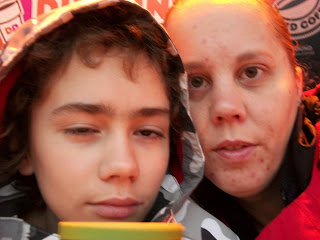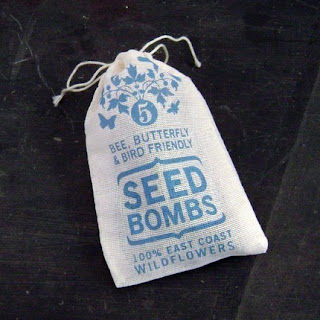Well, the 2009-2010 school year is coming to an end for us. For those that don't know, we are a homeschooling family. By age JP is in the 6th grade but his work ranges from 6th up to 8th or 9th, depending on the subject. This was an interesting year for us as we decided to try a charter school program. Financially it was a great decision but in terms of some of the curriculum choices, it left a bit to be desired. But, I'm not going to blog about the charter. Instead, this is a curriculum roundup and I will be talking about what materials we used, what we liked, and what we didn't like so much.
Of course, we covered all of the basic subjects: Language Arts, Social Studies, Science, and Math. But, JP also was able to take some golf lessons and he got his first taste of archery. JP also got his first taste of German. We went on a few science adventures and field trips, and soaked up so much from just living and paying attention to the world around us!
What subject shall we tackle first? Language Arts? Well,
alrighty then! Let's get started...
For Language Arts, we continued working on a writing program that involved both impromptu writing assignments (Mom: I think you should write a short story today. JP:
Ok...) and formal assignments.

WRITING: We have been working out of a series of workbooks designed for 3rd graders, but we skipped several parts and I added information along the way to make the work more challenging and bring it up to a 6th grade level. The workbooks are called "Just Write" and are published by
EPS (Educator Publishing Service). When JP left public school, writing was a HUGE problem. The program imposed by
JP's former public school had made writing difficult by imposing rigid rules about how to write paragraphs. JP was afraid to write *more* because he thought he couldn't due to the rules. We had to break down all the silly rules that the school insisted on and start from scratch. That was two and a half years ago but we are still dealing with some of the aftermath. The Just Write books are relaxed and easy going. Again, these are meant for 3rd graders, but with some careful manipulation, probing questions and discussion, and analyzing the workbook lessons in comparison to our regular reading materials, these books were a perfect fit for
JP's needs. We also did many of the workbook lessons orally and JP wrote the longer exercises on the computer word processor.
GRAMMAR - Honestly,
Easy Grammar is about the driest curriculum I have ever seen. So, why use? Because it is effective! The workbook starts with prepositions and prepositional phrases and once those are mastered the rest becomes pretty easy. We did the bulk of the work orally and when JP had obviously mastered a segment, we skipped the rest of the lesson and moved on. Almost every lesson incorporates previous lessons as well so there is no real need for review. The program builds on itself from lesson to lesson. The series starts off with early elementary school and goes through 6th grade. The final book is, according to the local homeschooling store owner, a 7th/8th grade level.
SOCIAL STUDIES: For social studies, we take a very eclectic approach. We decided to start over with history and start from the earliest historical times and work our way forwards. For modern current events, we listened to lots of NPR, read the newspaper, and watched video of events such as President
Obama's Message for America's Students. The spine for our history curriculum is an amazing book from
National Geographic called The Visual History of the World. This book is HUGE and in full color. Every page has a timeline and many photos, charts, and graphs. It is densely packed with information. After every small segment, I looked for a video on one of the educational channels on television, or on
Netflix, to reinforce the information we had just read. We both are enjoying this book and it is so thick that we will easily go another two years before finishing it!
SCIENCE: Science was a struggle this year. A major struggle. The charter program we used wouldn't allow us to have our preferred curriculum. We wanted to use
Noeo Science but, while most of the materials are secular, a few minor pieces were too sectarian for public school funds to be used for their purchase. Even without those parts, however, we still couldn't get this curriculum. Next year, I plan to buy it with my own money. Not doing so this year was a big mistake. When we first began homeschooling, we used
Noeo's Chemistry I curriculum and it was FANTASTIC! I highly recommend
Noeo to both
homeschoolers and to non-
homeschoolers who want something extra or different. Next year we will try Physics II.
Noeo kits are a complete curriculum with everything from the teacher's guide to texts to experiment materials. Most of the other materials you need for experiments, however, are things you will find around your home.
So, what did we do in place of
Noeo? We played quite a bit of this game: The Way Things Work. It has three levels of play, with the first involving simply answering questions and the other two involve doing experiments. We also tried a variety of experiment booklets but found that most were lacking and only about half of the experiments worked. However, JP took golf lessons this spring, and guess what? There is a LOT of physics in golf! A LOT! So, we looked up physics and golf and read many articles on the topic. JP also watched several videos from many sources on all manner of scientific topics. His favorite? The tv show Mythbusters!
MATH: This year for math, we took a departure from traditional
curriculums. Our approach to math this year involved two different
curriculums that seem to compliment each other well. We used
Life of Fred: Fractions and
Key To workbooks. Why two
curriculums? Well, Life of Fred didn't give JP enough practice problems and Key To was a bit boring on it's own. The two go together quite nicely.
Life of Fred is a fun series of books! They follow a specific sequence, beginning with fractions. In this series, you will meet Fred. Fred is a five year old professor of math at Kittens University. Silly, right? But that is the key! That is the hook that will get your kid into this math curriculum. The series follows Fred in a narrative fashion as he works his way through various problems in life - like how to buy a bike and how to divide ingredients among various pizzas. The books are like one huge word problem but they are *FUN* while being educational. JP and I both enjoyed Life of Fred: Fractions and in the fall will begin the Decimals text.

The Key To workbooks are quite different. They also start with fractions and then move to decimals. However, you could easily start with a different math concept, if you so choose. The workbooks are set up as a series of four booklets per most topics. JP just finished the fractions workbooks but had started on the decimals selection after he hit a point of fractions burnout. He ended up going back and forth between the two and then realized, on his own, that decimals and fractions are really representations of the same thing.
Next year, we will finish up Just Write-book 3. We will continue on with the next level of Easy Grammar, Life of Fred, and Key To. In addition, we will continue on with Visual History of the World. But, I am at a loss as to where to go next with writing. We have tried a variety of writing programs, including the widely acclaimed Writing Strands, but so far we haven't found anything else that works for us. Any thoughts? Beyond those things, we will continue to explore
JP's personal interests - golf, archery, German, and drawing. Since we will be on the east coast, we also anticipate much learning about history and science by exploring the areas around us. You can't get much more up close and personal with history than visits to Boston, Philadelphia, Washington DC, Salem, and so many more important locations in the history of the United States! And, all of the museums that will be at our fingertips?!?!?! I can't wait for the adventures to come!

















.png)

























